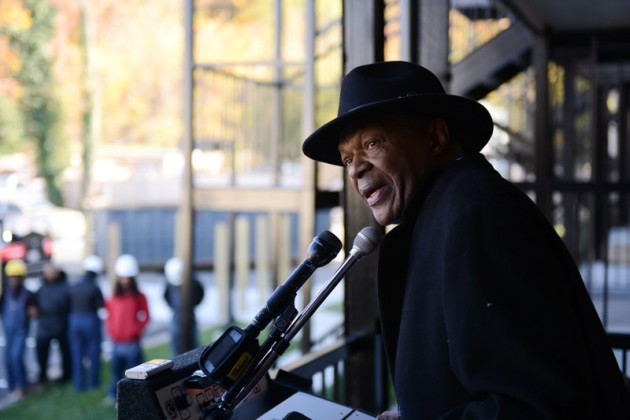Smoking amongst teens is down, thanks to the “truth” campaigns from the American Legacy Foundation. But the Foundation may soon become cold turkey itself.
The nationwide “truth” anti-smoking campaign has helped decrease the prevalence of teenage smokers, a recently published study suggests. According to the publication in the March edition of the Journal of Public Health, the program served as a catalyst for decreasing teen smoking rates by 22 percent, the equivalent of 300,000 youth between 2000 and 2002. The study reports that there is a direct link between the truth ads and teenage smoking trends—increased exposure to the truth anti-smoking ads reduces the likelihood of a teen smoking.
Though he has never smoked cigarettes, Garrett Bridges, a junior at Northwestern High School in Rock Hill, South Carolina contends that the ads persuade him not to adopt the habit. “The truth ads are put in a way that you understand which makes them very powerful commercials. They are usually very realistic and that’s what makes them effective.”
In accordance, Winnetonka High School (Kansas City, Missouri) junior Rumia Swopes believes the truth campaign is convincing in “promoting” individuals especially teenagers not to smoke.
The initiative launched in February 2000 by the American Legacy Foundation may no longer be as effective in its anti-smoking efforts due to a potential loss of funding. The American Legacy Foundation was established in March 1999 as a result of the Master Settlement Agreement in which tobacco companies committed to contributing money to support anti-smoking efforts. Yet as a clause, companies were allowed to cease payments after five years if their market share dipped below 99 percent. With the influence of smaller manufacturers on the tobacco industry market share it is predicted that these payments will soon come to an end. In turn the survival of the foundation and its programs are threatened due to the fact that its portion of the $206 billion settlement serves as the primary financial support for its operations.
American Legacy Foundation CEO, Dr. Cheryl Healton declared in a statement that the recent findings “reiterate the need for the truth national anti-smoking campaign to be able to continue with the same level of funding as during the early years of the campaign when this and other studies measured the most dramatic declines in youth smoking since 1997.”
To further compound the monetary dilemma, state legislators are increasingly reducing allocations for anti-smoking programs. One example of state cuts is Minnesota’s Target Market campaign’s budget reduction from $23.7 million to $4.6 million in a 5-year period.
As cited on American Legacy Foundation website, Vermont Attorney General and member of the foundation’s Board of Directors, William Sorrell stressed, “We are at a critical stage in this fight. Both state sponsored youth smoking prevention programs and the truth campaign are in jeopardy…The foundation has received what is likely its last major payment from the Master Settlement Agreement. Now the funding for truth is rapidly declining. We need both the state and national campaign to prevent young people from becoming addicted to cigarettes and facing a lifetime of disease.”
Lincoln University (Jefferson City, Missouri) senior Jonathan Amerison believes that cigarette companies shouldn’t be obligated to financially support anti-smoking programs due to “the nature of the business.” “Like any other business, [cigarette companies] are in it to make money. Regardless of the risks associated with cigarette smoking, it’s contradictory for them to support anti-smoking programs.”
Nihja Oliver, a Howard University junior agreed by stating, “Tobacco companies shouldn’t be forced to do something that is contrary to their business and the way in which they make their profit.”
For more information regarding the truth campaign and the mission of the American Legacy Foundation visit www.thetruth.com and www.americanlegacy.org.




